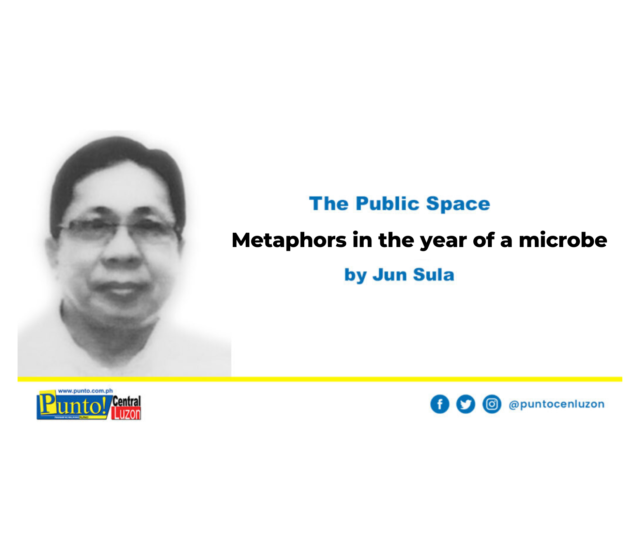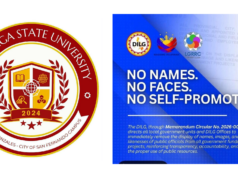The world-famous Danish pianist and comedian Victor Borge once observed language is slower to adjust to reality than say, money or numbers. Proposing an alternative he called inflationary language, he rued the fact that prices tend to “rise to the occasion” while language lags behind.
Well, our inflation rate has gone down to about 2 percent in upwards of two months of the lockdown, and the President’s favorite word is still ” shoot”.
In this year of the pandemic, Borge’s observation seems to be on the money. Metaphors, in particular, are in short supply. So the current conversations and narratives about COVID 19 sound dull, vague, unimaginative and, mostly, esoteric. The overall effects, intended or not, are fear, uncertainty and helplessness.
The existential scare is in itself is a metaphor for human mortality and finitude in a very harsh and inhuman way.
Mostly, experts talk about the COVID 19 in terms of whether we are behind, flattening or ahead of the curve. The curve symbolizes the progress of the virus and, as far as the scientific data, or the paucity of it, would indicate where it is rearing and replicating itself in warm human bodies
In other words, at one time or another, we are either chasing, riding or ahead of the rampaging virus. One may ride a runaway bull, rein it somewhat with its leash in your hands, but is not necessarily under one’s control. Most of us feel that way with the inconsistent statements coming from government authorities. Yes, we have flattened the curve. No, we are not in control yet. So the bull of a virus keeps goring people.
Comparing the fight against the virus to a “war” is also in questioned, especially by ethicists. It’s not fair, they say, to analogize it that way. A war presupposes soldiers. In the COVID 19 “war” doctors and nurses are the soldiers’ equivalent, which is branded as false equivalence.
Unlike soldiers, doctors and nurses elect to make the extreme sacrifice. The former don’t; it’s part of the deal they make with government.
“Presenting those respondents ( meaning healthworkers)as soldiers do them a disservice. It whitewashes the elective nature of their sacrifice and, potentially, normalizes their death as the inevitable consequence of any war,” wrote Elliot Ackern and Allan Detsky in “Why Comparing the Fight Against Covid 19 to War is Ethically Dangerous.”
“So, let’s not diminish what they’ve done for us by assuming they had to do it,” the article added.
The Philippines, I believe, ranks number 4 in the Asia-Pacific region in terms of the numbers of doctors and nurses who lost their lives– heroes, in Duterte’s own words, as if that would assuage or salve the pain of losing a loved one— in fighting the COVID war. Their death is partly blamed on lack of adequate protective equipment. President Duterte has literally taken the word “war” than metaphorically by designating retired generals to head agencies and task forces involved, relegating health experts to the background.
And war presupposes casualties, collateral damages, if you will: a mentally ill ex-soldier shot by a cop, a quarantine violator beaten black and blue by a barangay police, and thousands of alleged violators detained and punished without the benefit of due process. It didn’t matter to the law enforcers if the violators were forced to make a choice between feeding their hungry families or keep themselves from being arrested or, worse, physically or psychologically abused. Dura lex sed lex,so goes the defense.
Presidential legal adviser Salvador Panelo has stretched their own metaphor by suggesting the absurd idea that the pandemic can be considered an invasion of the virus, and therefore, can be a ground for the declation of martial law.
In the United States, the corona virus has been tagged as a” brilliant genius” by President Trump while he himself has claimed to be the stable genius. Between the brilliant one and the stable other, the number of cases in the US is showing who has the upper hand.
Trump, along with cohorts, is pointing at China as the source of the virus — in fact the “maker” of the virus — with his unfounded allegation that the virus escaped from a laboratory in Wuhan and didn’t tell the world about it immediately. In other words, the horse ran out of the barn while China kept mum about it until the cat was out of the bag.
The metaphor used by the prime minister of Ireland, the land of James Joyce and George Bernard Shaw, seems perfect. In his speech, Taoseach Leo Vradkar said the virus is” a fire in retreat”. “We must quenched its every spark and stamp out its every ember”. An enemy is implied and ,though invisible, is clearly tracked down and basically cornered. And they’re using science there but used metaphor to make the message clear.
Metaphor can be used not only for effective messaging but to give it some poetic touch. You’re supposed to be inspired, if not entertained, and encouraged by what you hear especially in these trying times. That’s what are leaders for, in the first place. A good voice with dramatic panache like Winston Churchill would be nice bargain.
According to Emerson, every word was once a poem and language is fossil poetry.
In France, the arbiters of language has decided that COVID 19 is feminine, not masculine. Juxtopose that with the fact that in countries where the virus has been stopped, its leaders are women. For example, Germany, Taiwan and New Zealand, among others.
“All transitions are a metaphor,’ says Nietzsche. It’s deep as the ocean, but it gives you some hope. VP Leni might just be the metaphor we need.





